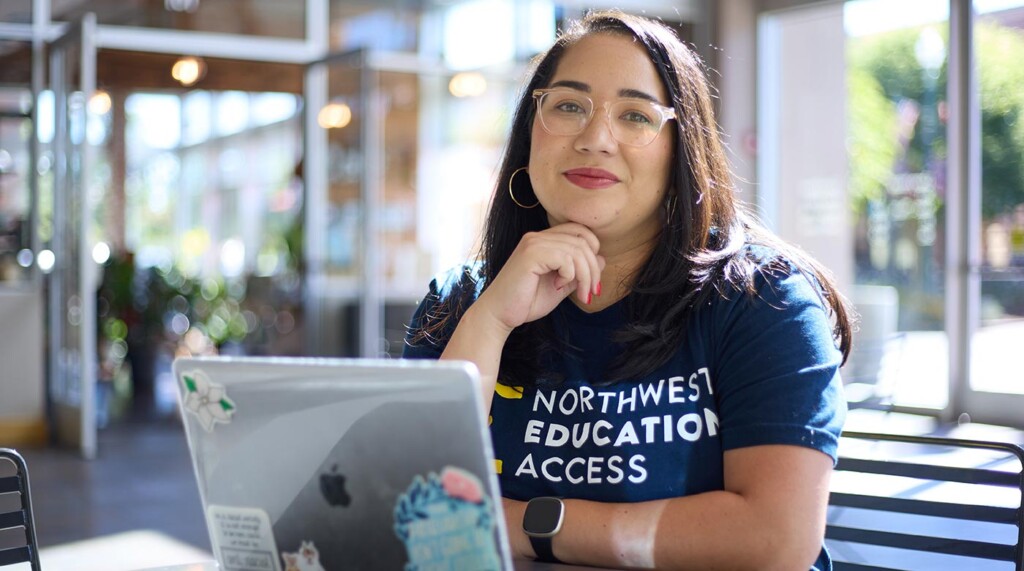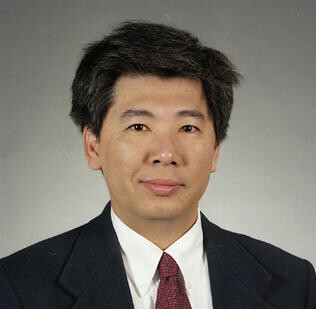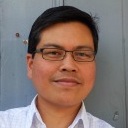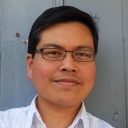Page 70 • (1,396 results in 0.022 seconds)
-

While at PLU, Angela Pierce-Ngo ’12 was worried by a troubling pattern. After the first year of college, many peers and friends — especially classmates of color — left school or took an extremely long break. Even as she worked as a diversity advocate and…
concerned about those missing from classrooms. She wrote a paper on why students of color might leave school and college. Pierce-Ngo assisted in coordinating the Students of Color Retreat and encouraged more peer support. "I’m proud of the work we have done in supporting students, long-term. Data shows that the program works, too. Thanks to the unique one-on-one support model, the students were three times more likely to pursue post-secondary education."- Angela Pierce-Ngo '12 But she found her true
-
Originally published in 2016 As scholars of the Humanities in the 21st century we find ourselves working in unusual settings. Places of faith and worship, educational contexts like high schools and public libraries, in newspapers, in comment forums, on radio shows, our “workplaces” often do…
conditioning. Despite the heat and the sweat, I count myself lucky to be here. I’m on a scholarship learning how to use a programming language called Ruby on Rails. More importantly, I’m using Rails to design a little piece of software that scrapes data from social media sites using the hashtag as a search tool. Want to see all the Facebook photos tagged with #PacificLutheran or #PLU? This software can do it. Want to read every tweet that makes reference to #election2016? This software can do that too. I
-

Professor Emeritus | School of Business | Dr.
Change, Technology Analysis and Strategic Management, Internet Research, International Journal of Services Technology and Management, Competitiveness Review, Journal of International Technology and Information Management, and the International Journal of Technology Transfer and Commercialization. Dr. Lee is a member of the editorial board of the Technological Forecasting and Social Change (Elsevier), International Journal of Innovation and Technology Management (World Scientific Publishing), Journal
Area of Emphasis/Expertise -
Boeing Materials & Manufacturing Technology is seeking an Entry Level Materials, Process & Physics Engineer (Chemical/Contamination) to support Auburn WA. https://jobs.boeing.com/job/auburn/entry-level-materials-process-and-physics-engineer-chemical-contamination/185/21580511472 Start your Boeing career in materials technology in Materials & Manufacturing Technology – Chemical Technology where you will have an opportunity to work on…
information to support definition of requirements for tools, equipment, materials, parts and processes used in the manufacture and engineering design of products. Incorporates changes to specifications and other documents to manage the deployment of materials, parts and processes. Performs tests to qualify new tools, equipment, materials, parts and processes to meet requirements. Assists with activities to qualify suppliers to applicable requirements. Conducts basic analysis to determine performance or
-

By Matthew Salzano ’18 PLU Communication Student I woke up at 8:15 a.m. Nov. 7, 2014, to an email from Michael Bartanen, Chair of the Communication department, with the subject, “You’re famous.” I came to PLU intending to focus my Communication degree on public relations…
) and where we were headed: the “Yes on I-591” rally in Bellevue, Wash., which was anti-gun-regulation. She also told us what we were looking for: color. (“Color” is a term used in journalism to describe what makes the story more human-interest-related. The same word is used to describe the sports anchor who accompanies play-by-play: Color commentators give expert analysis, player history and light anecdotes.) As The Mast’s A&E Editor, I knew finding color wouldn’t be a problem. Making stories PLU
-
Global society is based on geology. Our energy resources, construction and manufacturing materials, food and agricultural products, and building sites all depend on the geologic environment.
to work closely with faculty in classes, laboratories, and field studies. Faculty members are available to work individually with students in small seminar groups and on research projects. Located in the Rieke Science Center, the Department of Earth Science has well-equipped classroom spaces and laboratories to support student and faculty research. Equipment includes a research-grade Zeiss scanning electron microscope (SEM) with an elemental analysis detector (EDS), a Geographic Information
-

Professor of English | Department of English | barotrp@plu.edu | 253-535-7318 | Rick Barot has published three books of poetry with Sarabande Books: The Darker Fall (2002), which received the Kathryn A.
magic, I also believe in tough-minded examinations of the thematic and formal elements that we use as writers. As a teacher, I prefer discussions in which everyone seems to have a lab coat on, detailing the mechanics of the work at hand. How a piece achieves its force through writerly decisions—decisions which have been guided by thought and feeling, insight and intuition, analysis and imagination, failure and risk—this is what I care about. As a necessary complement to the writer’s solitary work
-

Secretary of Faculty | Faculty Governance | barotrp@plu.edu | 253-535-7318 | Rick Barot has published three books of poetry with Sarabande Books: The Darker Fall (2002), which received the Kathryn A.
. Even though I believe that a strong piece of writing generates something like magic, I also believe in tough-minded examinations of the thematic and formal elements that we use as writers. As a teacher, I prefer discussions in which everyone seems to have a lab coat on, detailing the mechanics of the work at hand. How a piece achieves its force through writerly decisions—decisions which have been guided by thought and feeling, insight and intuition, analysis and imagination, failure and risk—this
-
by Dana Bodewes, Instructional Designer The beginning of a new academic year provides an opportunity to reflect on effective teaching practices and perhaps try something new. Consider the practice of using “essential questions” during the instructional process. Essential questions explore salient, fundamental ideas that are…
own essential questions, but the instructor should have a pre-established set of questions to guide students’ study and inquiry. McTighe and Wiggins (2013) say a good essential question: 1. Is open-ended; that is, it typically will not have a single, final, and correct answer. 2. Is thought-provoking and intellectually engaging, often sparking discussion and debate. 3. Calls for higher-order thinking, such as analysis, inference, evaluation, prediction. It cannot be effectively answered by recall
-

Professor of English | Gender, Sexuality, and Race Studies | barotrp@plu.edu | 253-535-7318 | Rick Barot has published three books of poetry with Sarabande Books: The Darker Fall (2002), which received the Kathryn A.
magic, I also believe in tough-minded examinations of the thematic and formal elements that we use as writers. As a teacher, I prefer discussions in which everyone seems to have a lab coat on, detailing the mechanics of the work at hand. How a piece achieves its force through writerly decisions—decisions which have been guided by thought and feeling, insight and intuition, analysis and imagination, failure and risk—this is what I care about. As a necessary complement to the writer’s solitary work
Do you have any feedback for us? If so, feel free to use our Feedback Form.


